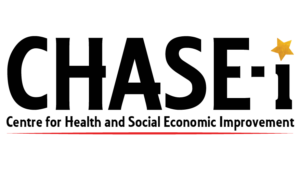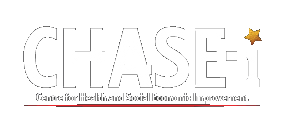Q&A with MoH Official.

Brian Luswata
- March 2, 2021
What do you know about Food Advertising to children and adolescents in Uganda?
Brian Luswata: Food advertising to children and adolescents in Uganda is ongoing and persuasive to entice children to consume unhealthy food. The way in which they advertise is what attracts these age groups to buy and consume them repeatedly over and over again.
What is the policy landscape in regard to food advertising to children and Adolescents in Uganda?
Brian Luswata:There is no particular law or regulation on food advertising targeted to children and Adolescents. There is a regulation on infant formula which is one of the measures that we have put in place to protect the infants in this country. This measure is being made under the Food and Drug Act of this country which is currently at the parliamentary council at the drafting stage. The main purpose of that law is to ensure that there is no advertisement on infant formula by manufactures including a ban on placing deceptive adverts. : We realized that there is a big problem with the way that infant formula is sold so we seized the small opportunity under the Food and Drug Act to properly address the problem and at least protect the 0–5-year-olds. This is the nearest law that we have to that and it is yet to be gazetted in the foreseeable future. At the moment, it is a statutory instrument passed under the Food and Drug Act which we already see has gaps. We think the long-term solution is to be able to enact the National Food and Medicines Authority Act.
How about companies like Coca Cola and Lato milk, are there organizations like UNBS or any other that approve their standards and render the items safe before consumption?
Brian Luswata:I cannot talk too much about Uganda National Bureau of Standards (UNBS) because I don’t work there but I am aware that there is an international standard called Codex Alimentarius which I am told they adopt with regards to food labelling but still they don’t have the mandate to regulate food advertisements. The most appropriate should be the NDA which is an affiliated body of the MOH but unfortunately the law that establishes them into a National Food and Medicine Authority has stalled for the last ten years. We are trying to revitalize it and right now the status of the law is that it is with the Office of the Prime Minister.
The MOH is trying to recall the bill and revitalize it to be able to address these glaring gaps because there is a lot of food being thrown on the market and in the absence of regulation the manufactures release a lot of deceptive and misleading adverts which target the adolescents and children. There is a big risk that we have to contend with.
What explains this laxity for the Bill to be passed?
Brian Luswata: The delay to pass the bill has been based on the clash of mandates between the different stakeholders and these are agriculture, MoH and Diary Development Authority. The concept of regulating food” from farm to fork” has many stakeholders involved and unless you reconcile the mandates, it will be very hard for them to agree. That is the stage that we are still on as we are trying to achieve common ground without encroaching on each other’s mandate. Therefore, the Bill was recalled by the Prime Minister; however MoH also recalled it so that it is in the proper ministry which is the MoH.
During this recalling period, has there been any effects or impacts of this delay?
Brian Luswata: Obviously there has been a lot of food safety issues but most prominently was the food poisoning in Karamoja. We do not have the mandate to regulate hotels in terms of what food they serve their clients and the adverts that air on national TV of food which has not been subjected to quality control and testing. We know that one of the pathways of NCD like cancer, diabetes and cardiovascular diseases is caused by the ingestion of unhealthy foods so we have an entire department dedicated to preventing NCDS which accounts for more than 30% of deaths.
There are some measures which we have put in place but they can only be addressed by the enactment of that law. For instance, we are working on a Food Procurement Policy for institutions to insist the procurement of healthy food on behalf of the Government of Uganda like the schools, prisons and hospitals. But still our overarching intention is to have the Food and Medicines Authority Bill passed into law because it will address the issues to do with food advertisements, food distribution, food importation and the like. It will repeal the obsolete Food and Drugs Act which I think has not been very helpful in addressing these challenges.
Do you have any other recommendations that would address food advertising to children and adolescents?
Brian Luswata: Borrowing from our Tobacco Control Act, which has been said to be one of the best laws in the world because it follows the WHO Framework Convention on Tobacco Control (FCTC) model, we think all food advertisements should be approved by the National Drugs Authority (NDA) so that we make sure we deal with deceptive advertisements.
We also think that advertising unhealthy food should be prohibited as was the case in tobacco whereby there is a comprehensive ban on advertisement and marketing of tobacco. In the same vein, sweetened beverages like soda should not be advertised because of the demographic that they target.
We think that with regard to unhealthy food, as Government of Uganda, there should be a ban on association of the industry which sells or markets unhealthy food. Those are some of the proposals I would recommend mirroring the reforms we put in our Tobacco Control Act. In that way we can have a healthy population, protect our children and adolescents from consuming unhealthy food and ultimately address issues of childhood obesity which are on the rise.
About the Interview
Mr. Luswata is the Principal Legal Officer at Uganda Ministry of Health. This Quick Interview was conducted by Maria Ssematiko, FACe-U Project team member and CHASE-i Associate.





